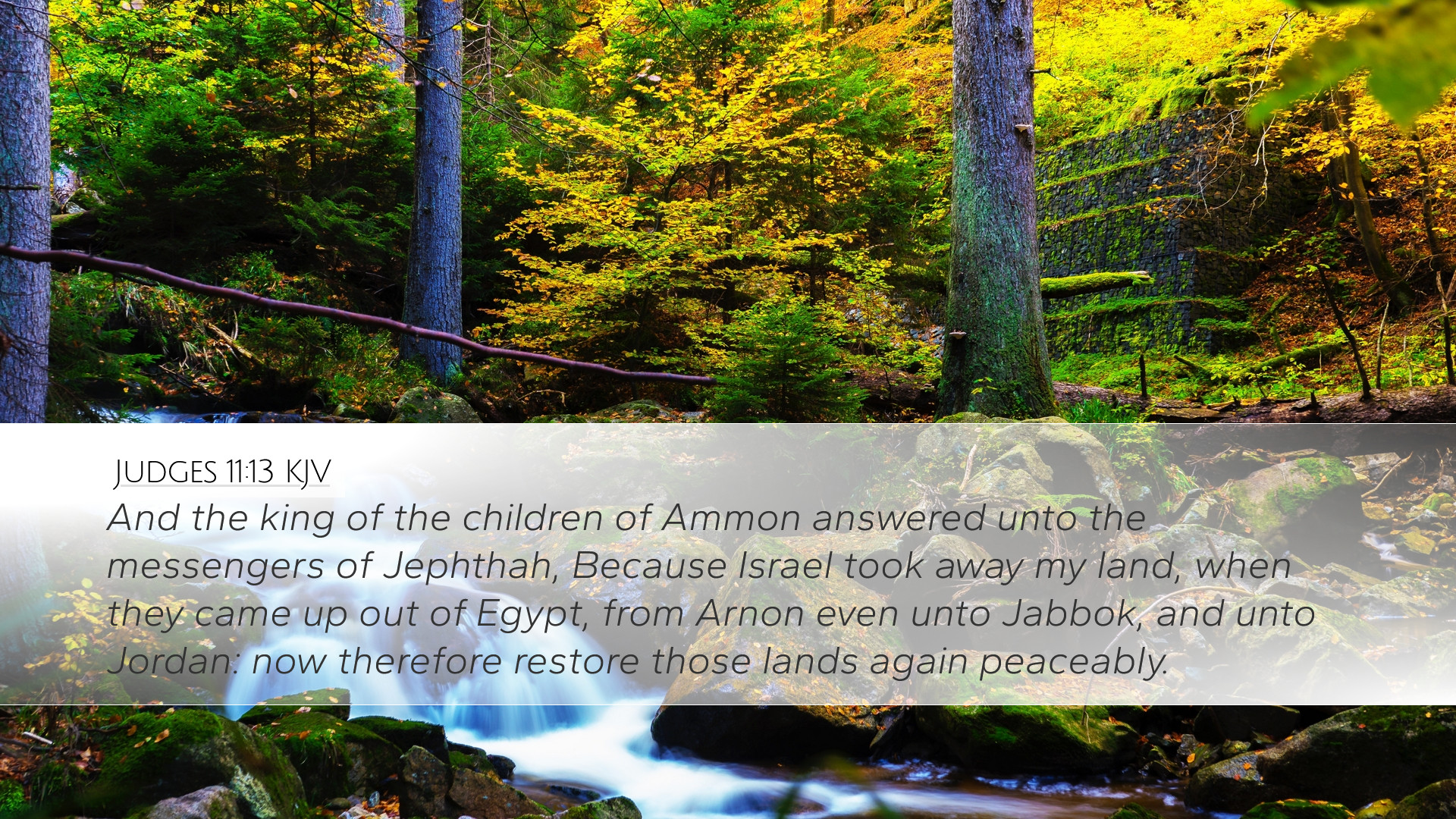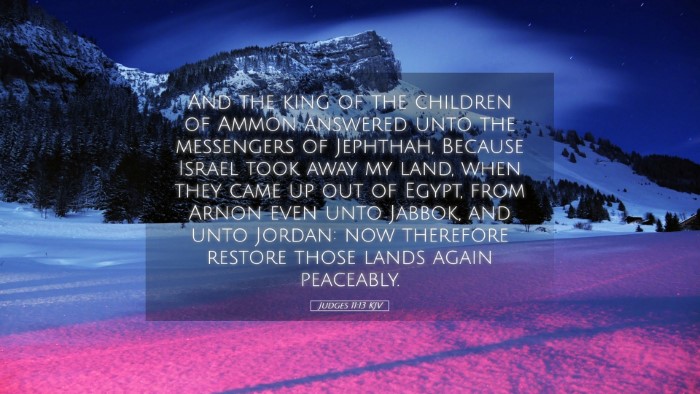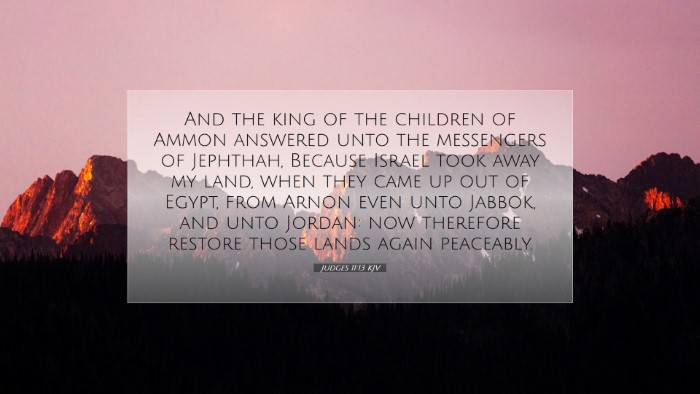Commentary on Judges 11:13
Judges 11:13 states: "And the king of the children of Ammon answered unto the messengers of Jephthah, Because Israel took away my land, when they came up out of Egypt, from Arnon even unto Jabbok, and unto Jordan: now therefore restore those lands again peaceably." This verse marks a pivotal moment in the narrative of Jephthah, highlighting the conflict between Israel and Ammon and setting the stage for subsequent events.
Contextual Background
This passage occurs during the period of the Judges, a time characterized by cycles of apostasy, oppression, and deliverance among the Israelites. The geopolitical tensions between Israel and its neighbors play a significant role in the narrative's unfolding.
- The Historical Context: The Ammonites were descendants of Lot, and there had been longstanding conflicts between them and Israel. The specific claim made by the king of Ammon focuses on territories acquired by Israel during their wanderings in the wilderness.
- The Role of Jephthah: Jephthah serves as a key figure in this narrative; a judge raised by God to deliver Israel from oppression, his confrontation with the Ammonites can be seen as both a military and spiritual struggle.
The King's Response
The king of Ammon's claim is significant for several reasons:
- Historical Revisionism: The assertion that Israel 'took away' the land merits scrutiny. Biblical accounts suggest that Israel was commanded by God to possess the land, indicating a divine mandate rather than theft.
- The Land Dispute: The territories mentioned—Arnon, Jabbok, and Jordan—are crucial geographic markers that illustrate the extent of the Ammonite claim. This dispute was not merely about land, but also about identity and divine entitlement.
Theological Implications
This interaction between Jephthah and the Ammonite king reveals profound theological considerations:
- The Sovereignty of God: The conflict emphasizes God’s sovereign control over nations and territories. The land was given to Israel by divine decree, which implies that any disputes must reckon with God’s will.
- Human Sovereignty vs. Divine Intent: The king's claim underscores the tension between human perceptions of justice and God's overarching plan. This serves as a meditation for pastors and theologians in considering the nature of conflict and resolution.
Commentary Insights
Multiple esteemed commentators provide rich insights into this passage:
- Matthew Henry: He suggests that the Ammonite king’s response encapsulates the arrogance of nations in claiming what exists under Divine authority. Henry implies that no human ruler has the right to dispute God's promises to His people.
- Albert Barnes: Barnes points out the significance of this dispute in relation to Israel’s historical narrative. He emphasizes that the claim of the Ammonite king reflects a misunderstanding of Israel's possession of the land as a fulfillment of God’s covenant.
- Adam Clarke: Clarke discusses the geography referenced in the Ammonite claim and suggests it serves as a tangible representation of the spiritual conflict underpinning the narrative. He believes that such claims often provoke a response that may lead to greater conflict unless resolved through divine wisdom.
Application for Modern Readers
For contemporary pastors, students, and theologians, Judges 11:13 offers vital lessons:
- Understanding Conflict: The nature of disputes, particularly those with spiritual implications, remains relevant today. The passage encourages one to seek divine understanding in conflicts.
- Claiming God’s Promises: This narrative affirms the importance of recognizing and claiming the promises of God amidst opposition. Believers are reminded that their inheritance in Christ is secure regardless of worldly claims.
- The Role of Leaders: As seen with Jephthah, leadership involves navigating complex disputes with wisdom and seeking God’s guidance before making decisions.
Conclusion
Judges 11:13 encapsulates a turning point in the narrative of Israel's judges, revealing the complexities of human conflict against the backdrop of divine assurance. Through the words of the Ammonite king, the larger theological conflicts and the sovereign implications of land possession resound even today.
In reflection, may we seek wisdom from this passage as we face our conflicts, recognizing the importance of divine perspective over human claims.


